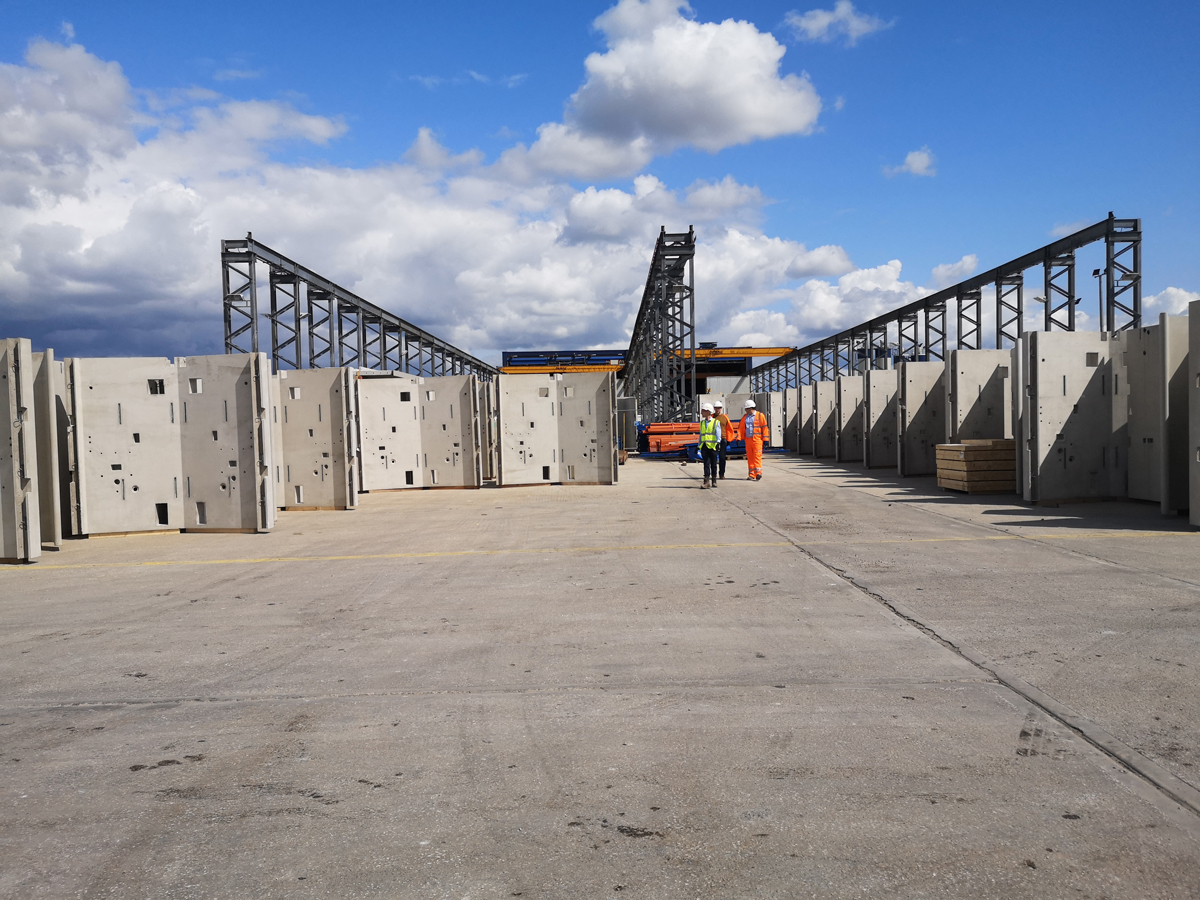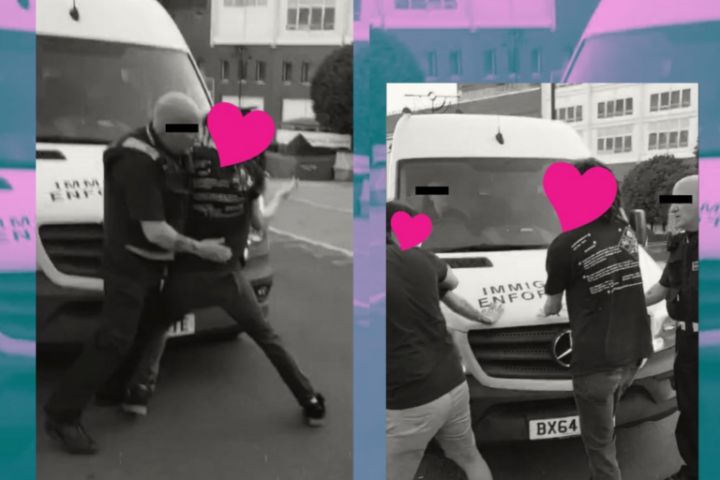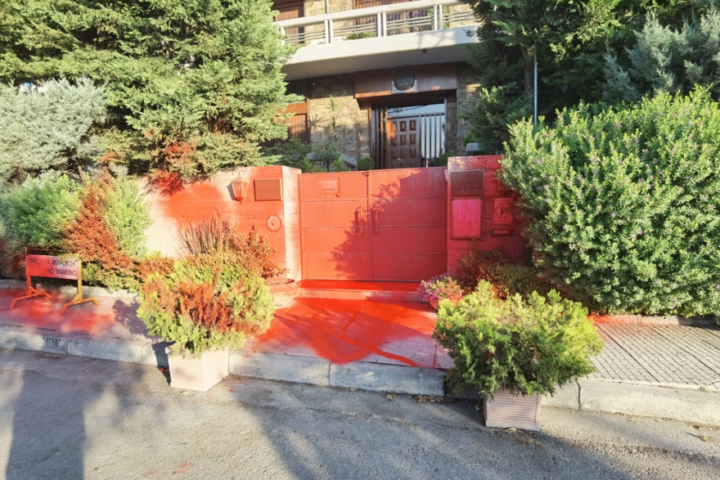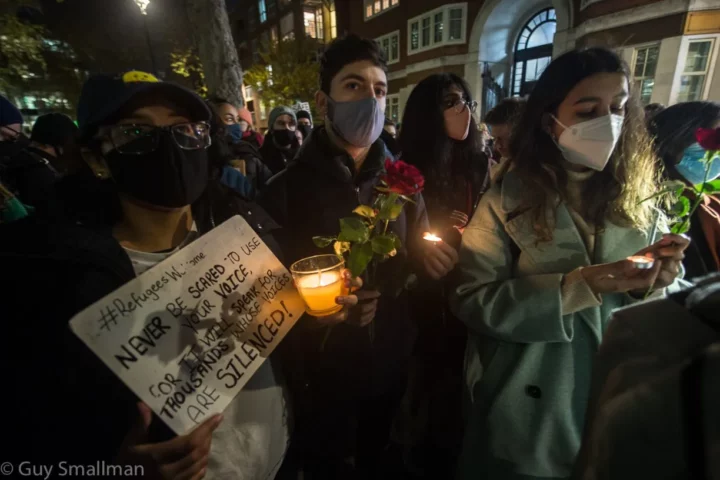SOAS Detainee Support is a grassroots abolitionist group. A vision of a world without borders or prisons is at the centre of everything we aim to do.
We recognise that the border and the prison are not just a line or a building out of sight; they are systems that permeate our daily lives through surveillance and punishment in our schools, universities and workplaces. These two systems, the border and the prison, are not separate. They are overlapping, mutually supportive regimes of violence and control that categorise and divide people into “innocent” (the citizen, the victim of a crime) and “guilty” (the “illegal” migrant, the “criminal”).
As abolitionists, we don’t want a migrants rights movement that only fights for the “legal” non-criminal migrant, and we don’t want a prison abolitionist movement that only fights for the imprisoned “citizen”. We want an abolitionist movement that fights for a world without violence, where every person, regardless of who they are or where they were born, can move freely and live with dignity.
At SDS, we’re starting a reading group to learn more about the interconnected history of the border and the prison, as well as the rich history of struggle against these systems, in the UK and elsewhere.
The colonial history of policing and prisons
The oppressive structures of policing, prisons and borders were born out of the systems of colonialism, racism and economic exploitation. Racial categories were weaponised to justify colonial oppression, while new systems of policing and prisons maintained the empire by disciplining and controlling racialised people. During colonial rule in Jamaica the British experimented with a national prison service half a century before the first national penitentiary – Millbank – was built in the UK in 1821. After the abolition of slavery in the Caribbean, the British established police forces and built up mass incarceration as a way to control the black population. In India and the Caribbean the British established police forces with the title ‘Imperial’ in their name. After independence, the police forces changed their name but the personnel and training regimes remained the same. And in Canada, the creation of the Royal Canadian Mounted Police (RCMP) was motivated by the need to control the Indigenous population. It is not a coincidence that the exclusionary systems developed in the colonies were then used in the UK against those who fell outside the narrow definition of being ‘British’.
We can see this legacy of racial and colonial oppression in the UK, and its former colonies such as Canada and Australia, with black and brown communities overrepresented in all levels of the criminal process, from stop and searches to imprisonment. So-called ‘foreign nationals offenders’ are treated more punitively than their British counterparts: they spend more time in confinement, they are given longer custodial sentences and they are often detained and deported after their sentence finishes. Migrant communities also face policing and punishment in everyday life. They are often denied access to healthcare, education and decent housing. In the most recent weeks we have seen migrants being ‘housed’ (i.e. detained) in unsanitary and brutal conditions in former army barracks. The way migrants are treated in the UK today echoes the suppression of racialised people in Britain’s former colonies.
Understanding UK prisons today
In this reading group, we’re aiming to focus on the UK context as much as possible. American abolitionist scholar Ruth Wilson Gilmore teaches us that all struggle is “place-based struggle”, and as a UK-based group, we need to understand the past and present of our own specific context to help our fight to unravel and destroy the border/prison system.
Books like Michelle Alexander’s The New Jim Crow and Ruth Wilson Gilmore’s Golden Gulag have helped to create a mainstream narrative about prison expansion in the US in the twentieth century. Although groups like Abolitionist Futures are working hard to make resources about UK abolitionist movements more accessible, it’s still harder to find clear narratives of the British prison system over the past hundred years.
Today, UK and US prisons have many things in common. Both are semi-privatised, often run by the same corporations. Both imprison racialised people and migrants at extremely disproportionate rates. Both have been sites of uprising and revolt, from the 1971 Attica uprising in New York, to the 1990 riot at HMP Strangeways in Manchester.
But the UK has its own specific political and historical contexts that we, as UK-based abolitionists should seek out and discuss:
- Why did the UK begin to privatise prisons in the early 1990s?
- Why did the UK prison population double between 1993 and 2010, in an era which also saw the massive expansion of the immigration detention system?
- How does British imperialism still linger in its carceral experiments, from internment in Northern Ireland in the 1970s, to David Cameron’s 2015 promise to spend £25 million on a new prison in Jamaica?
- Where, when and how did activist groups fight these systems and imagine other kinds of justice and care in their communities?
We hope that thinking through these and other questions will help us better understand how to wage our own struggles against UK border and prison systems.
No Borders, No Prisons
The case of Osime Brown, an autistic young man who finished his prison sentence and is being threatened with deportation to Jamaica where he left when he was 4, demonstrates the injustice and racism of this system. There are many more like him. Young black men who have committed ‘crimes’ (Osime was imprisoned under joint enterprise – a contentious legality) and are being doubly punished by being deported. In December 2020 the Home Office attempted to deport 50 people, who had finished prison sentences, to Jamaica. However, as Priti Patel and the Home Office continues to deprive migrants of their rights, resistance to their cruelty grows. The family of Osime Brown and grassroots activists have built a strong campaign to stop his deportation and thanks to the powerful campaigning by anti-deportation and detention groups, only 13 out of the 50 people were deported to Jamaica in December. To ensure more campaigns like this are successful depends on how well the movement can deconstruct the Home Office’s rhetoric that migrants should be criminalised.
The migrant rights movement often uses the dichotomy of ‘good migrant’ vs. ‘bad migrant’ claiming asylum seekers are ‘not criminals’. However the UK government has a history of adjusting the threshold of what a ‘criminal’ is. Creating new policies that expands the criminalisation and punishment of those who are not deemed ‘British’ enough. To successfully fight for liberation for all we need to insist on dismantling the UK’s criminal justice system which stems from British colonialism. For a truly anti-racist and anti-colonial migrant justice movement to flourish it must be abolitionist.




